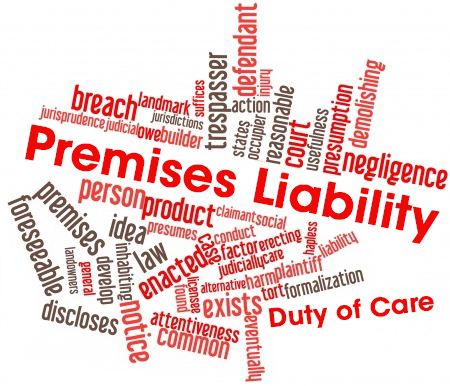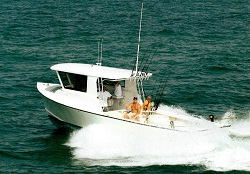An Overview of Premises Liability Law

Possession of Premises
Within the context of premises liability, a person “possesses” land or premises when:
- The person is in occupation of the land with intent to control it;
- The person has been in occupation of land with intent to control it; or
- The person is entitled to immediate occupation of the land, if no other person is in possession as just defined.
The Status of the Injured Plaintiff
Under the premises liability law of most jurisdictions it is necessary to determine if the plaintiff was an “invitee,” a “licensee,” or a “trespasser.” The defendant’s duty to the plaintiff can vary significantly depending upon how the plaintiff is classified.
Invitee
An invitee is person who is invited to enter or remain on the premises for a commercial benefit to the possessor of premises, or for a purpose directly or indirectly connected with business dealings with the possessor.
Typically, a possessor has a duty to use ordinary care to warn or otherwise protect an invitee from risks of harm from a condition on the possessor’s premises if:
- The risk of harm is unreasonable, and
- The possessor knows or in the exercise of ordinary care should know of the condition, and should realize that it involves an unreasonable risk of harm to an invitee.
The possessor may have a duty to periodically inspect the premises for the introduction of hazards to invitees.
Licensee
A licensee is a person who is invited to enter or remain on the premises for any purpose other than a business or commercial. A social guest is considered to be a licensee, not an invitee.
Typically, a possessor of premises is liable for physical harm caused to a licensee by a condition on the premises if, but only if, the plaintiff establishes the following three elements:
- The possessor knew or should have known of the condition, should have realized that it involved an unreasonable risk of harm to the licensee, and should have expected that the licensee would not discover or realize the danger;
- The possessor failed to exercise reasonable care to make the condition safe, or to warn the licensee of the condition and the risk involved; and
- The licensee did not know or have reason to know of the condition and the risk involved.
Trespasser
A trespasser is a person who goes upon the premises of another without an express or implied invitation, for his or her own purposes, and not in the performance of any duty to the owner. It is typically not necessary for a defendant to establish that the trespasser had unlawful intent in making such an entry.
Where premises owners are not aware of the presence of trespassers, they typically have no duty to warn a trespasser of any dangers or to make their premises safe for the benefit of a trespasser.
A landowner’s duty may arise when the criminal conduct of a third party is the foreseeable result of a landowner’s negligence. When criminal conduct of a third party is foreseeable, the landowner has a duty to prevent injuries to invitees if it reasonably appears or should appear to him that other innocent persons may be injured on the property.
If a business is in a high crime area, the landowner may be required to take special safety measures such as hiring security personnel or installing security systems. Failure to do so may result in liability.
These cases also can occur at apartment buildings and rental homes. If the landlord fails to maintain functioning locks on doors and windows, fails to properly light parking lots or stairwells or install security cameras when necessary, he could be held accountable when crimes lead to injuries or deaths.
Determining Whether Negligence Took Place
By thoroughly investigating, Peter M. Commette, P.A. will gather all of the facts required to prove that a business failed to recognize all of the warning signs. We will be able to show that a business acted negligently by choosing not to do what was necessary to keep visitors secure.
Since our establishment in 1990, our firm has achieved a long record of winning verdicts and settlements. Peter M. Commette, P.A. knows how to obtain results in negligent security cases.




